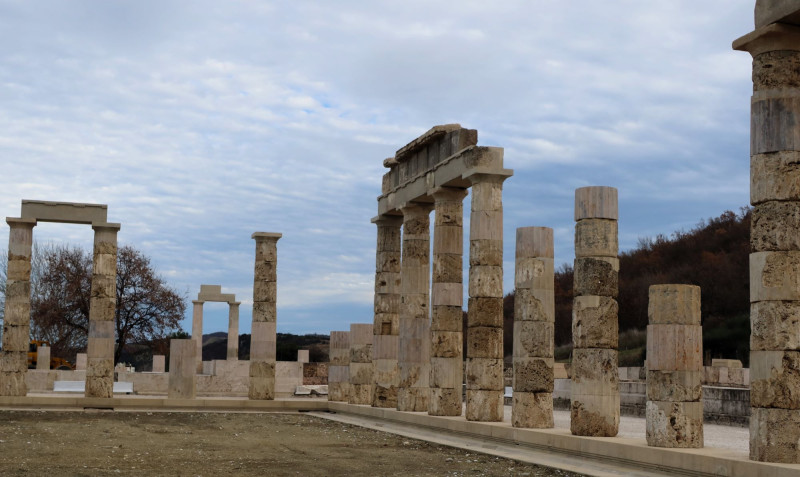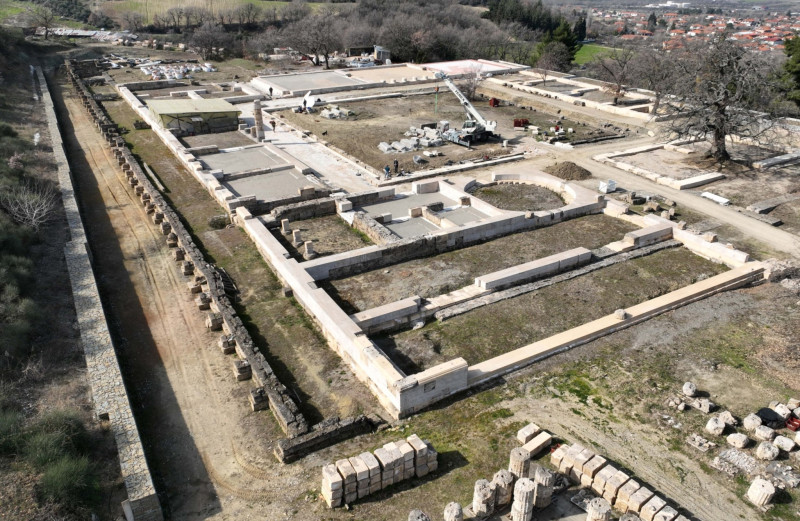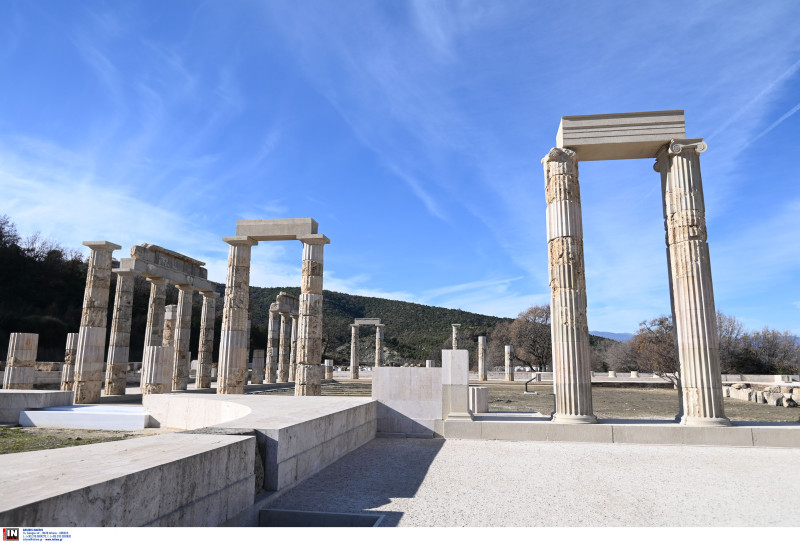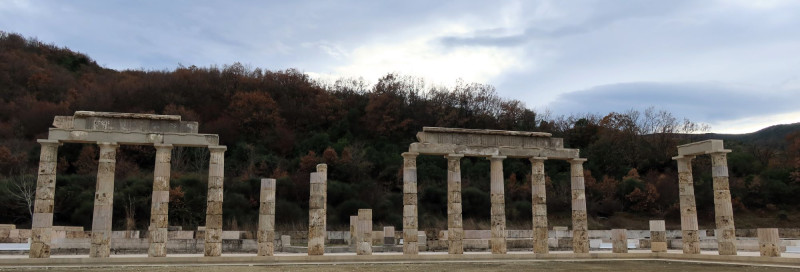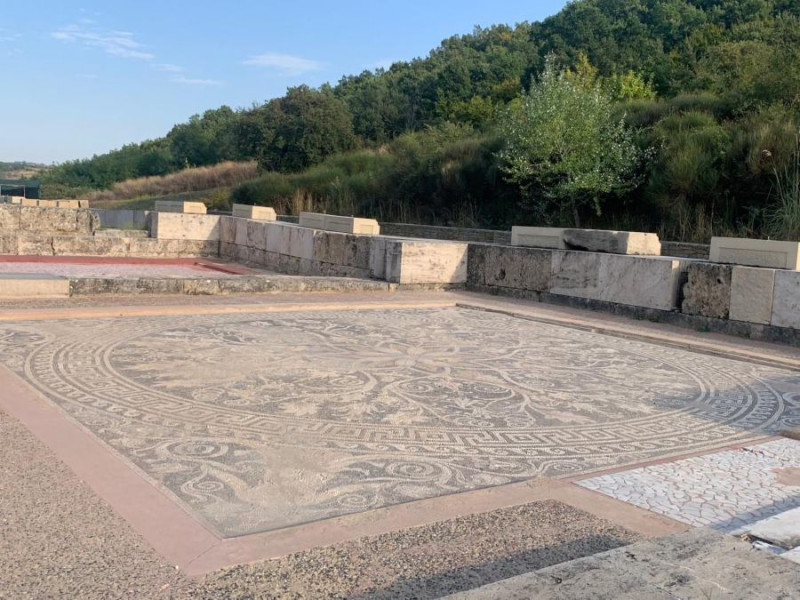The “Kingdom” of Macedonia refers back to its original image and glory
The “resurrection” of his palace Philip II at Goats from his wounds, the guests at the Polycentric Museum of Goats celebrated today, among them Prime Minister Kyriakos Mitsotakis.
The restored palace which emerged from the oblivion of the centuries, refers back to its original image and glory and in fact, from next Sunday it opens its gates to welcome the public.
The palace of Philip II is located a few kilometers away from the new museum and is the largest building of classical Greece – in fact it was visible from the entire Macedonian plain.
The ancient monument is a point of reference as it was there that the Macedonians declared him king Alexandershortly after the assassination of Philip II’s father and
Its current form is the result of a struggle to preserve and put together thousands of pieces, which began in 2007.
The “Parthenon of Macedonia” a palace open to all
“The “Basilion” has an area of approx 15 acres and is the largest building of classical Greek architecture. It is dated with certainty to the middle of the 4th century and is the culmination of the architectural vision, with which Philip II tried to modernize and reform the royal metropolis of the Macedonians”, said the chief archaeologist of the works at each stage, Angeliki Kottaridis.
As he added, at the beginning of the 90s the German scholar Wolfram Hefner, the first to correctly date the monument, named it “Parthenon of Macedonia”, wanting to emphasize its importance.
Angeliki Kottaridis, however, compared the two monuments, stressing that almost three times the size of the Palace of the Goats, but also its wider use.
“Philip’s royal building was not a simple palace, i.e. the king’s house, but a building intended to be used by the Macedonians, partners and foot soldiers, i.e. everyone,” he explained.
According to her, its architect was probably Pytheus and it was absolutely one groundbreaking for its time, a pre-eminently public building, impressively monumental and at the same time multifunctional, addressed to the fellow citizens of the Macedonian king with multiple uses.
The palace area also includes:
* the Museum of the Royal Tombswhich was built in the 1990s to form the protective shell of the royal tombs of the Philip II cluster and the exhibition space of the unique treasures brought to light by Manolis Andronikos,
* the archaeological necropolis parkwith an area of almost 550 acres, which was given to the public as a visitable tree-planted area, archaeological and naturalistic tour in 2021,
* the new state-of-the-art museum building with an area of 146,000 square meters and a cost of 18 million euros, which was inaugurated exactly one year ago by the prime minister and is already a point of reference and one of the most important cultural infrastructures of the country,
* and ancient theater which is also being restored, the listed church of Agios Dimitrios and other individual monuments.
Source: Skai
I have worked as a journalist for over 10 years, and my work has been featured on many different news websites. I am also an author, and my work has been published in several books. I specialize in opinion writing, and I often write about current events and controversial topics. I am a very well-rounded writer, and I have a lot of experience in different areas of journalism. I am a very hard worker, and I am always willing to put in the extra effort to get the job done.


